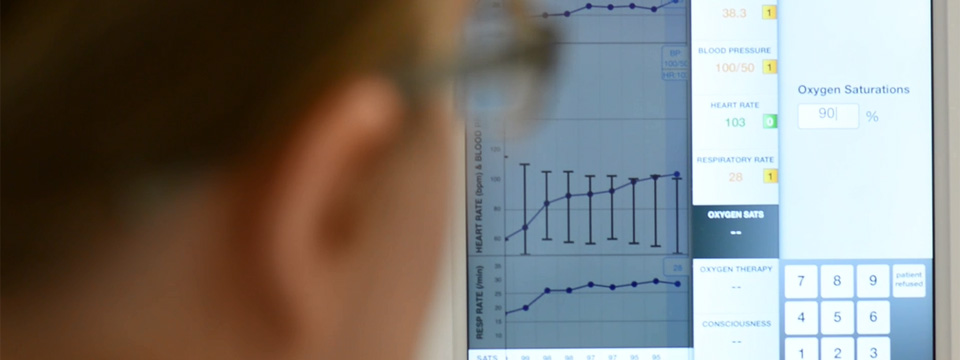As one of the largest NHS teaching trusts in the UK, Oxford University Hospitals is well placed to discover how new technology can improve efficiency and safety at its four hospital sites.
The digital hospital
Harnessing advances in digital technology to benefit the NHS through research is one of the many exciting developments in health science in recent years.
Building the digital hospital
How we use the Electronic Patient Record and other new technologies to improve patient care.
This includes a Trustwide project to replace bedside paper charts, which record adult patients' vital signs, with tablet computers, through the System for Electronic Notification and Documentation (SEND) project.
Staff input vital signs such as heart rate and blood pressure into the tablet, which immediately provides advice on how to manage the patient's care and displays any deterioration in their condition.
It also means information about patients can be shared more quickly around the Trust, saving crucial time that was previously spent looking for and transporting paper charts.
The SEND project - System for Electronic Notification and Documentation
The SEND project uses the latest computer tablet technology to record and evaluate patients' vital signs, replacing traditional paper charts. It will help alert medical staff to early patient deterioration quickly and reliably, and allow that data to be shared with specialists across the hospital sites.
The ordering of blood has also been considerably improved at Trust hospitals through new technology with the Real-Time Blood Transfusion Data and Decision Support project.
This uses barcode patient identification and handheld computers at the bedside to prompt staff through every step of the blood ordering process and verify the correct blood is transfused.
It means the entire process - integrated with our electronic patient record (EPR) system of computerised medical records - is paperless, a first in the UK, and saves the Trust £500,000 a year.





























































